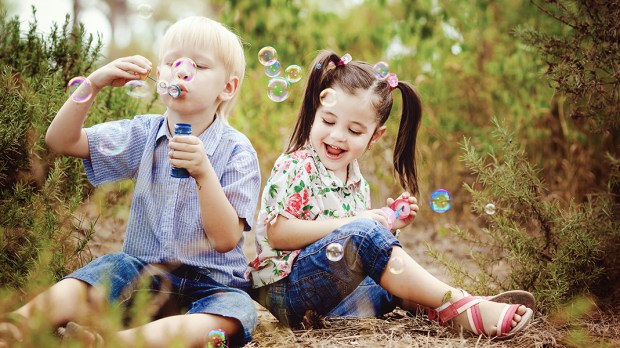Lenten Campaign 2025
This content is free of charge, as are all our articles.
Support us with a donation that is tax-deductible and enable us to continue to reach millions of readers.
“Truly I tell you, unless you change and become like little children, you will never enter the kingdom of heaven,” Jesus says in Matthew 18:3. Any serious Christian must take these words to heart. But what exactly does it mean to “become like a little child”?
There are qualities we possess as children, abilities we have by virtue of being children, that often seem to elude us once we are all grown up. We must grow out of childishness, yes, but there are child-like attitudes, ways of being, and traits that we should never lose. Time spent with a young child can remind us of this. Here are three things (among others) than children can teach us.
1To be honest
Be careful what you ask a child, because you may just get a straight answer. And while it’s true that blunt honesty can sometimes hurt, we adults can benefit from remembering that if we could gently “say yes when we mean yes, and no when we mean no,” our relationships might be all the better for it. Children show us that being honest with ourselves and with others is a way to cut through noise and confusion and live more authentically.
2To be grateful no matter what
“Give thanks in all circumstances” St. Paul says in 1 Thessalonians, 5:18. That’s not just in good times, but also during pandemics, civic unrest, and all manner of hardships. How is that possible? Children are often happy for no apparent reason — they can laugh and smile, skip and play, even when the most egregious things are happening around them. That’s because they can rejoice in the good that is before them, they can focus on what brings joy amidst hardships or worries.
3To be curious
“Curiosity killed the cat, the old proverb goes, but there is a type of curiosity children possess that adults would do well to emulate. Children love to ask questions and no question is too silly or insignificant. A child’s curiosity seeks to discover and understand not to exploit, but to delight in knowing something more. As adults, if we had more healthy curiosity, we would listen more carefully to others who are different than us; we would be more inclined to let ourselves get uncomfortable so that we could discover something new about ourselves, other people, and the world around us.

Read more:
The power of sharing family stories with your children

